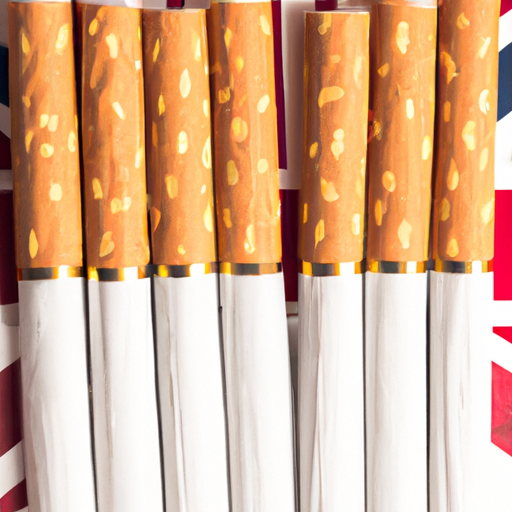
As I sit down to write about cigarettes in the UK, I am immediately filled with mixed emotions. On one hand, cigarettes have been a staple in my life for as long as I can remember. On the other hand, I am all too aware of the detrimental effects they have on both my health and the society as a whole. Nevertheless, I believe it is important to shed light on the role of cigarettes in the United Kingdom, and the impact they have on individuals and the country as a whole.
It is no secret that smoking is a widespread habit in the UK. According to the Office for National Statistics, in 2019, an estimated 14.1% of adults in the UK were cigarette smokers. This translates to around 7.4 million people – a staggering number, to say the least. I, unfortunately, am one of those individuals. I started smoking in my teenage years, like many others my age. It seemed like a way to fit in and be cool. Little did I know the hold that cigarettes would soon have on me.
One of the factors contributing to the prevalence of smoking in the UK is the accessibility and affordability of cigarettes. In the UK, it is legal to buy cigarettes at the age of 18, which is relatively young compared to other countries. Additionally, the cost of a pack of cigarettes is significantly cheaper in the UK compared to other European countries. This makes it easier for young people to pick up the habit, as well as for existing smokers to continue.
However, in recent years, the UK government has taken steps to discourage smoking through various methods. One such method is through taxation. In 2017, the government introduced a new tobacco control plan, which included an annual increase in tobacco duty of 2% above the retail price index. This has resulted in the average price of a pack of cigarettes increasing from £9.91 in 2017 to £10.64 in 2019. While this may not seem like a significant increase, it has had an impact on smokers’ wallets. Personally, I have noticed a strain on my finances due to the constant increases.
Another measure taken by the government to reduce smoking rates is the implementation of plain packaging laws. This means that all cigarettes sold in the UK must be in standardised packaging, with no branding or logos. The aim of this is to reduce the appeal of smoking, especially to young people. As someone who has grown accustomed to the design of my preferred cigarette brand, I must admit that this change has been jarring. It no longer feels like the “cool” or “elegant” thing to do, as the branding no longer exists. However, I must acknowledge the effectiveness of this measure in reducing the appeal of smoking, especially to impressionable young people.
Despite these efforts by the government, smoking remains a significant issue in the UK. The consequences of smoking go beyond just the individual smoker. It also has a significant impact on the healthcare system and the economy. In the UK, smoking-related diseases cost the National Health Service (NHS) an estimated £2.5 billion every year. This is due to the increased risk of developing various health conditions, such as lung cancer, heart disease, and stroke. As someone who has witnessed loved ones battle with smoking-related illnesses, it is never lost on me the toll that smoking takes on one’s health and the burden it places on the NHS.
In addition to the direct impact on healthcare costs, smoking also has an indirect impact on the economy. The time lost to smoking breaks by employees, as well as the impact of smoking-related illnesses on productivity, costs the UK economy an estimated £14 billion every year. This is a significant amount that could be used for other purposes, such as improving the healthcare system or investing in education and infrastructure. Furthermore, the tobacco industry is a powerful one, with billions of pounds of revenue every year. This money could be used for more productive and beneficial purposes, rather than promoting a habit that has disastrous health consequences.
As someone who has been a smoker for many years, I cannot simply point fingers and place all the blame on the tobacco industry or the government. I must take responsibility for my own actions. However, I do believe that more could be done by both parties to tackle the issue of smoking in the UK. While taxes and plain packaging have had some impact, I believe that stricter laws and regulations could further reduce smoking rates. This may include banning smoking in public places, implementing harsher penalties for selling cigarettes to underage individuals, and stricter regulation of advertising and marketing strategies used by the tobacco industry.
In conclusion, cigarettes play a significant role in the UK, both in terms of their prevalence and their impact on individuals and society. As someone who has been a smoker for many years, I am all too aware of the physical, financial, and societal consequences of this habit. However, I also believe that it is not solely the responsibility of individual smokers to tackle this issue. The government and the tobacco industry must also take accountability and work towards reducing smoking rates in the UK. Until then, I will continue to ruminate on the hold that cigarettes have on me and the society around me.